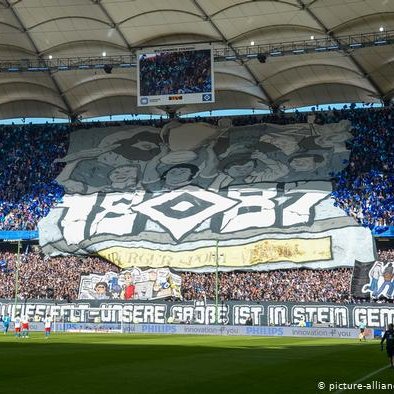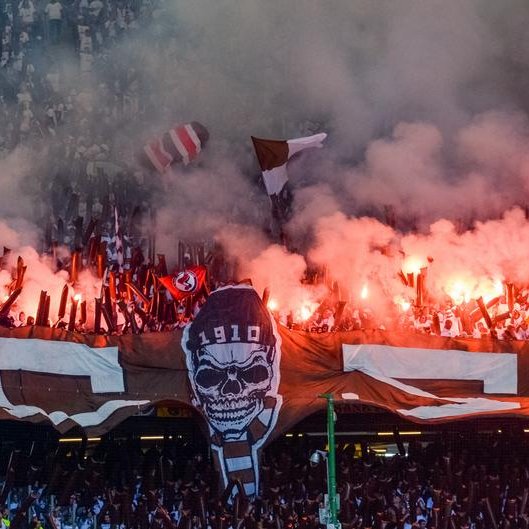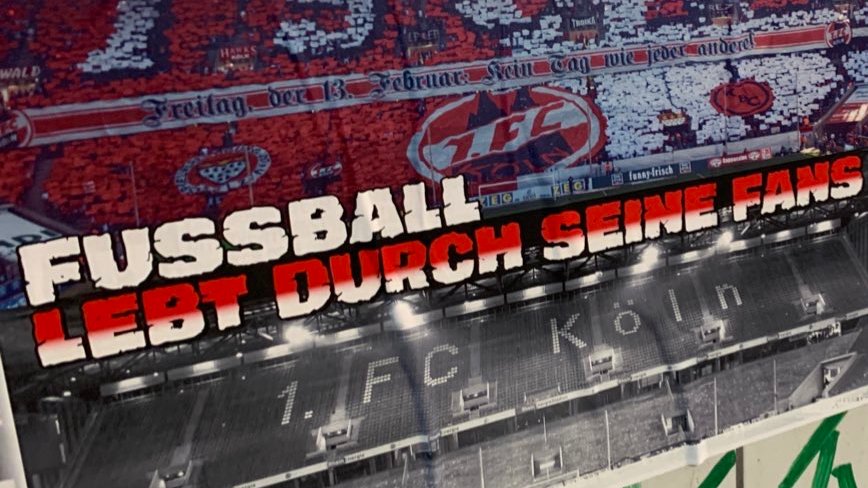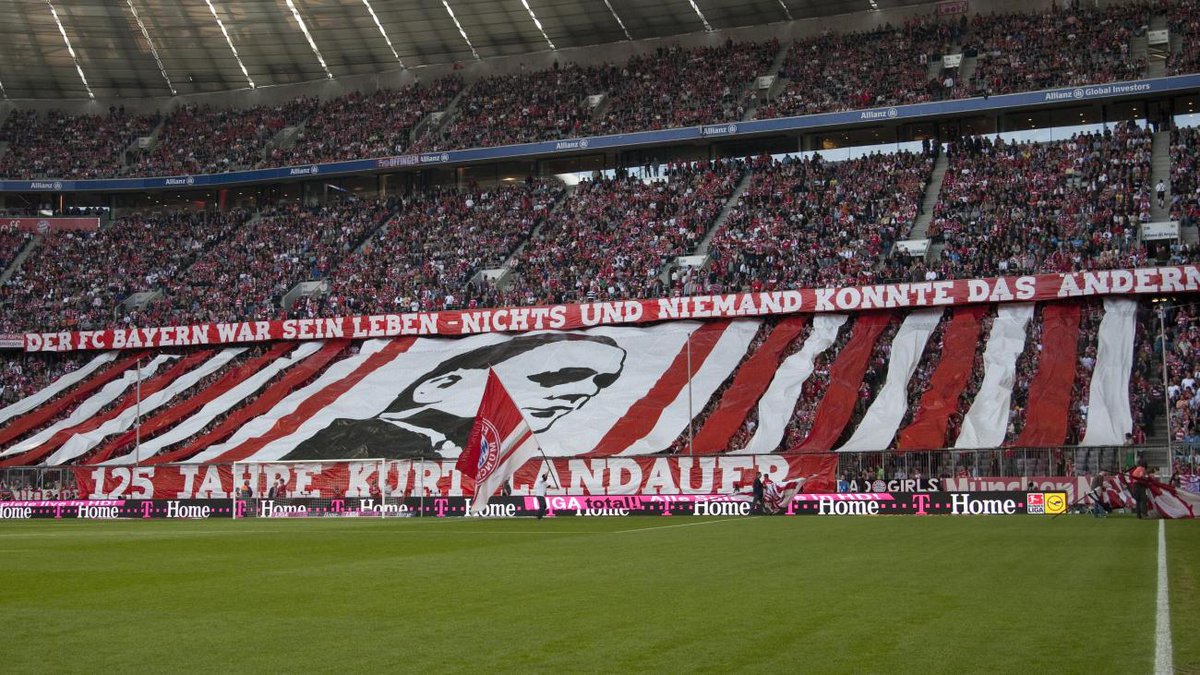
Jubos, one of Borussia Dortmund’s main ultra groups, have reportedly dissolved.
This is worrying for two very, very different reasons.
Thread on fan culture in #COVID19 times, commercialization and the fight against the far right in the city of Dortmund.
1/21 #BVB #nonazisdo
This is worrying for two very, very different reasons.
Thread on fan culture in #COVID19 times, commercialization and the fight against the far right in the city of Dortmund.
1/21 #BVB #nonazisdo
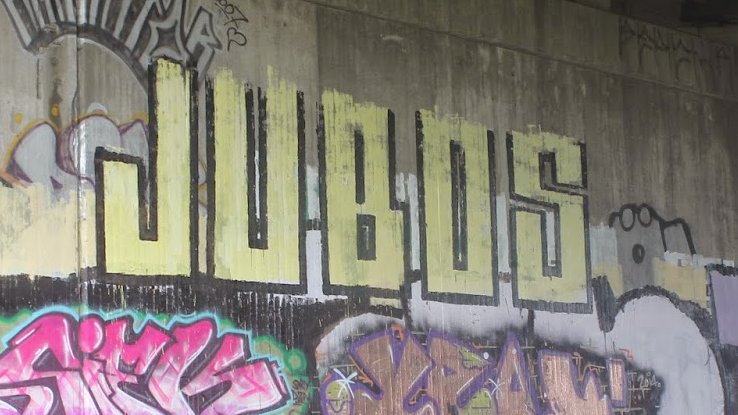
Jubos (Junge Borussen, or “Young Borussia Fans”) were established in 2005.
Along with The Unity and Desperados, they were one of Borussia Dortmund’s three main ultra groups.
Jubos’ main focus was the fight against football’s commercialization. 2/21
Along with The Unity and Desperados, they were one of Borussia Dortmund’s three main ultra groups.
Jubos’ main focus was the fight against football’s commercialization. 2/21
In November 2019, they boycotted a Borussia Dortmund away game in Barcelona due to away tickets costing the maximum 70 euros price.
Jubos were also active against commercialization in Germany, most recently against the likes of Rasenballsport Leipzig and Hoffenheim. 3/21


Jubos were also active against commercialization in Germany, most recently against the likes of Rasenballsport Leipzig and Hoffenheim. 3/21
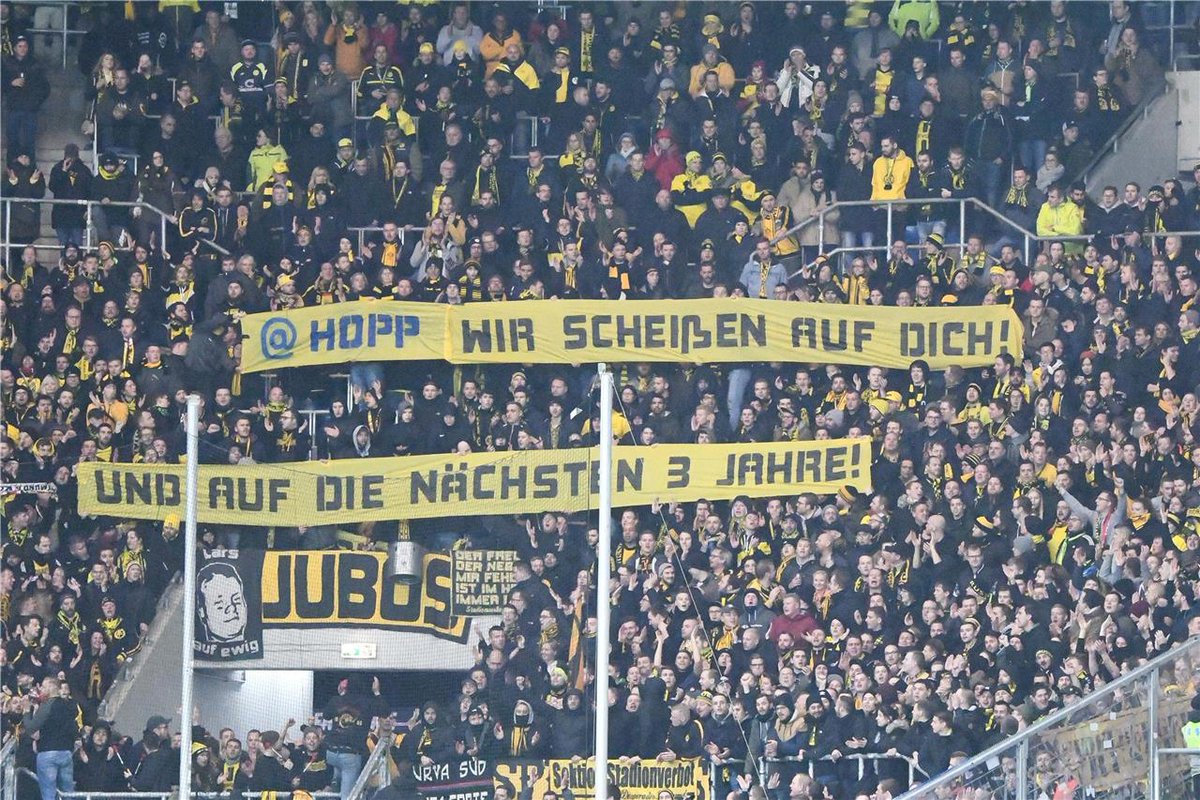
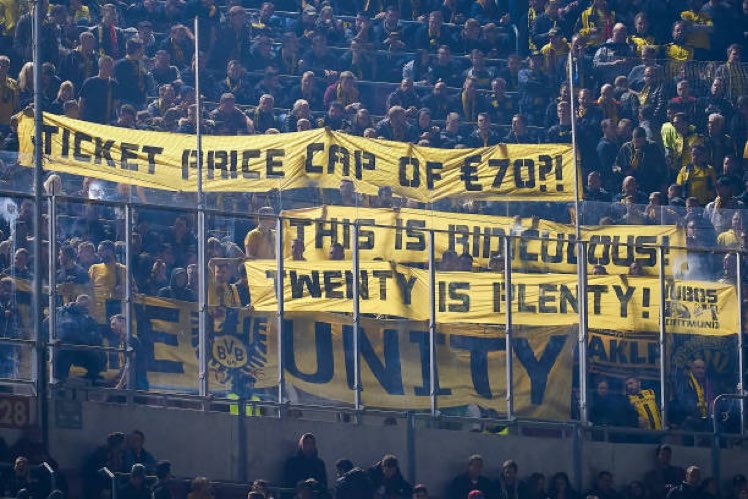
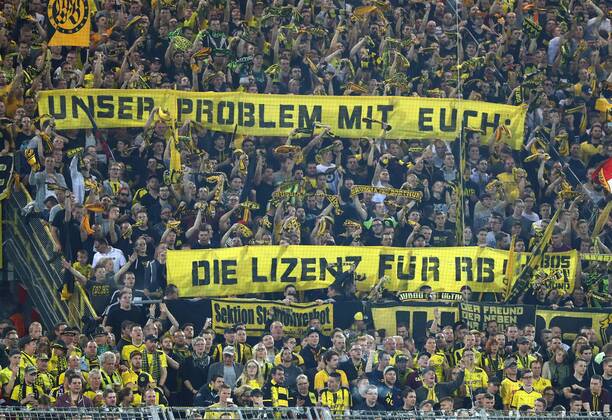
Jubos were involved in Dortmund’s organized support in the Südtribüne, also known as the Yellow Wall.
Here’s one of their initiatives, the chaos intro ahead of the game against Mainz in April 2019. 4/21
Here’s one of their initiatives, the chaos intro ahead of the game against Mainz in April 2019. 4/21
Politically, Jubos were one of the groups at Borussia Dortmund’s ultra scene who often took a stand against the far right.
Here’s an example, where they hold a banner against Die Rechte, an ultra-nationalist far-right party.
“You've nothing to do with our derby! Piss off!” 5/21
Here’s an example, where they hold a banner against Die Rechte, an ultra-nationalist far-right party.
“You've nothing to do with our derby! Piss off!” 5/21
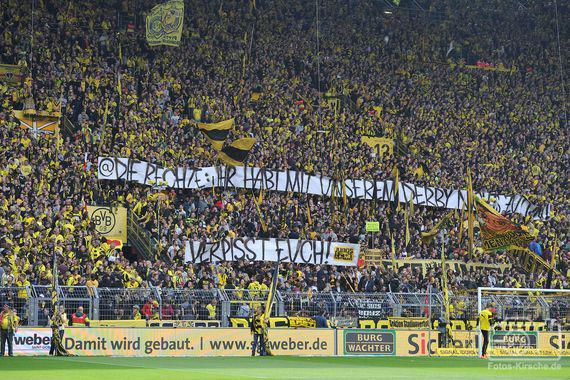
Last but not least, Jubos often used their organizational skills for providing help in their community.
Among their initiatives: collecting food for those in need, offering help in shopping for high-risk patients for #COVID19 and many others. 6/21
Among their initiatives: collecting food for those in need, offering help in shopping for high-risk patients for #COVID19 and many others. 6/21
Jubos have now decided to dissolve.
According to RN, the main reason for it was the loss of hope in the fight against football's commercialization, with the lack of generational continuity and far-right threats against anti-racist #BVB ultras playing minor roles. 7/21
According to RN, the main reason for it was the loss of hope in the fight against football's commercialization, with the lack of generational continuity and far-right threats against anti-racist #BVB ultras playing minor roles. 7/21
Why is this worrying? Well, two very, very different reasons.
First of all, the loss of an ultra group whose members the past 15 years criticizing developments in football means one critical voice less in the ever-changing landscape of German football. 8/21
First of all, the loss of an ultra group whose members the past 15 years criticizing developments in football means one critical voice less in the ever-changing landscape of German football. 8/21
German football needs voices such as Jubos’ to observe certain developments, and for making sure tendencies which would take football away from society, away from match-going supporters, wouldn’t go unnoticed. 9/21
Once some ultra groups, who dedicate so much of their time & energy for their club for so long, decide there’s no point in fighting anymore, German football would lose an important element of its critical fan culture, which would have long-term effects on the game here. 10/21
Secondly, while RN say this aspect only played a small part in Jubos’ decision, the fact far-right threats played a role in an ultra group dissolving should serve as a warning sign to everyone who cares about fan culture and its political diversity in Germany’s stadiums. 11/21
This isn’t just about football. While Dortmund is a stronghold of the social-democratic SPD, it is also a city with far-right elements.
Particularly, some streets in the quarter of Dorstfeld, where graffiti such as “Nazi quarter” were recently removed. 12/21
Particularly, some streets in the quarter of Dorstfeld, where graffiti such as “Nazi quarter” were recently removed. 12/21
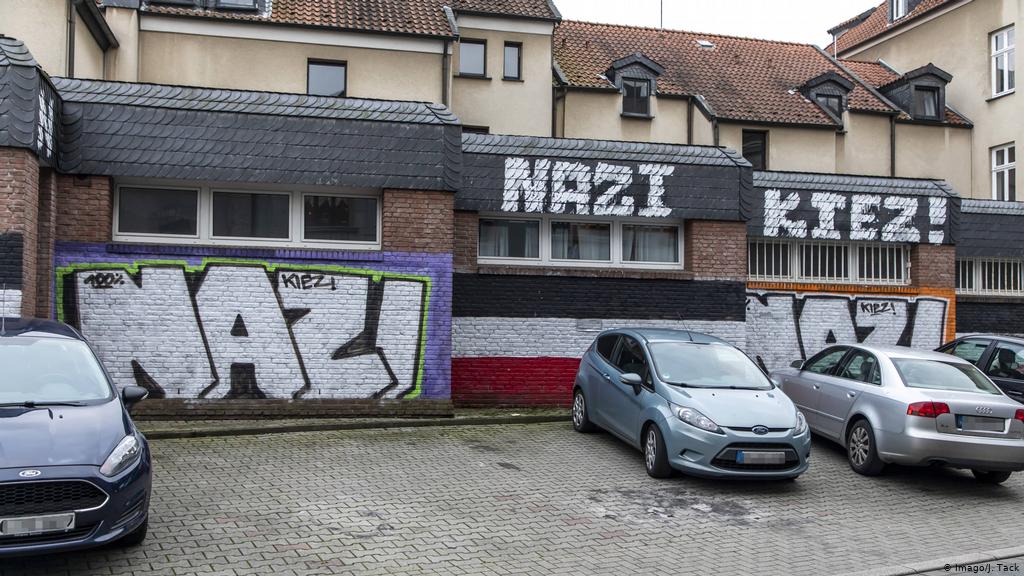
Background on the city of Dortmund’s politics and how #BVB's engagement against anti-Semitism and the far-right could make the club "unattractive" for fascists and anti-Semites, for @dw_sports. 13/21
dw.com/en/borussia-do…
dw.com/en/borussia-do…
One example of an incident which took place as two anti-racist Dortmund fans were waiting for their train and some neo-Nazis spotted them. 14/21
https://twitter.com/ftamsut/status/1062655323234811905
In a city like Dortmund, where the football club and its support play such a massive role in everyday life, those who have the say in the terraces are also bound to have their influence over other aspects of life in the city. 15/21
For that reason, far-right elements from within #BVB’s support have long been trying to silence voices from the club’s ultra scene for taking a stand against Nazis. 16/21
This @dw_sports article, by @matt_4d, has more background on how far-right elements threaten anti-racist #BVB ultras in Dortmund. 17/21
dw.com/en/fear-on-the…
dw.com/en/fear-on-the…
It needs to be said that The Unity, #BVB’s biggest ultra group, stood against far-right tendencies in the past, despite several violent incidents against them.
The group often held banners against Nazis, while also providing help to refugees arriving in Dortmund in 2015. 18/21
The group often held banners against Nazis, while also providing help to refugees arriving in Dortmund in 2015. 18/21
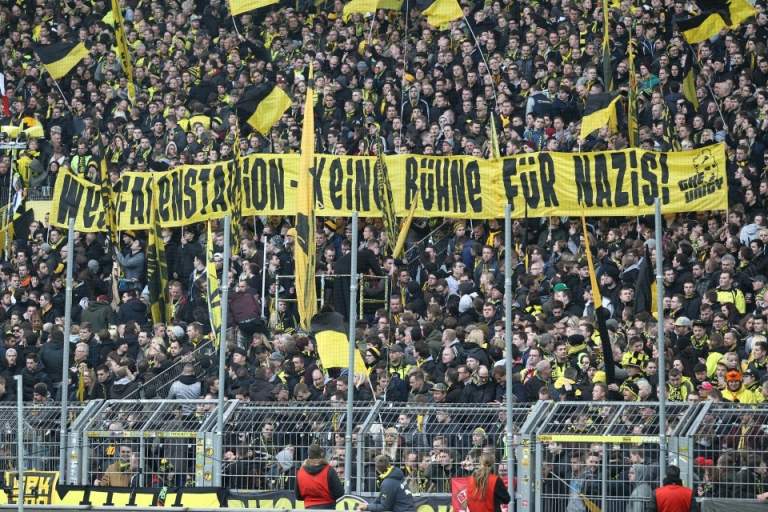
It’s not just me who says that.
Thilo Danielsmeyer is the head of the @fanprojektdo, the social workers providing help for (mostly young) #BVB fans. Not many know the club's fan and ultra scene as well as they do.
Here’s what he told RN about Jobus dissolving: 18/21
Thilo Danielsmeyer is the head of the @fanprojektdo, the social workers providing help for (mostly young) #BVB fans. Not many know the club's fan and ultra scene as well as they do.
Here’s what he told RN about Jobus dissolving: 18/21
“(Jubos) leave a gap which will be difficult to fill.”
Danielsmeyer says their social, political involvement was “enormous.”
“Many abroad are jealous of our fan culture in Germany, but it is currently on the edge. This will not be the only ultra group disappearing.” 19/21
Danielsmeyer says their social, political involvement was “enormous.”
“Many abroad are jealous of our fan culture in Germany, but it is currently on the edge. This will not be the only ultra group disappearing.” 19/21
This is a challenging time, and ultra groups are no different.
I can only hope everyone understands the situation’s sensitivity, as shown by the Jubos’ example, in more ways than one.
Because at some point, Corona will be history and stadiums will be full again. 20/21
I can only hope everyone understands the situation’s sensitivity, as shown by the Jubos’ example, in more ways than one.
Because at some point, Corona will be history and stadiums will be full again. 20/21
The questions are: What sort of football we’ll be getting back, and what will happen to Germany's critical, politically engaged fan culture once it's all over? 21/21
Sources: @RNDORTMUND @FasziFankurve @fanprojektdo @schwatzgelbde @bvereint @TinneffBlog @dw_sports @Nordstadtblog
Sources: @RNDORTMUND @FasziFankurve @fanprojektdo @schwatzgelbde @bvereint @TinneffBlog @dw_sports @Nordstadtblog
• • •
Missing some Tweet in this thread? You can try to
force a refresh

